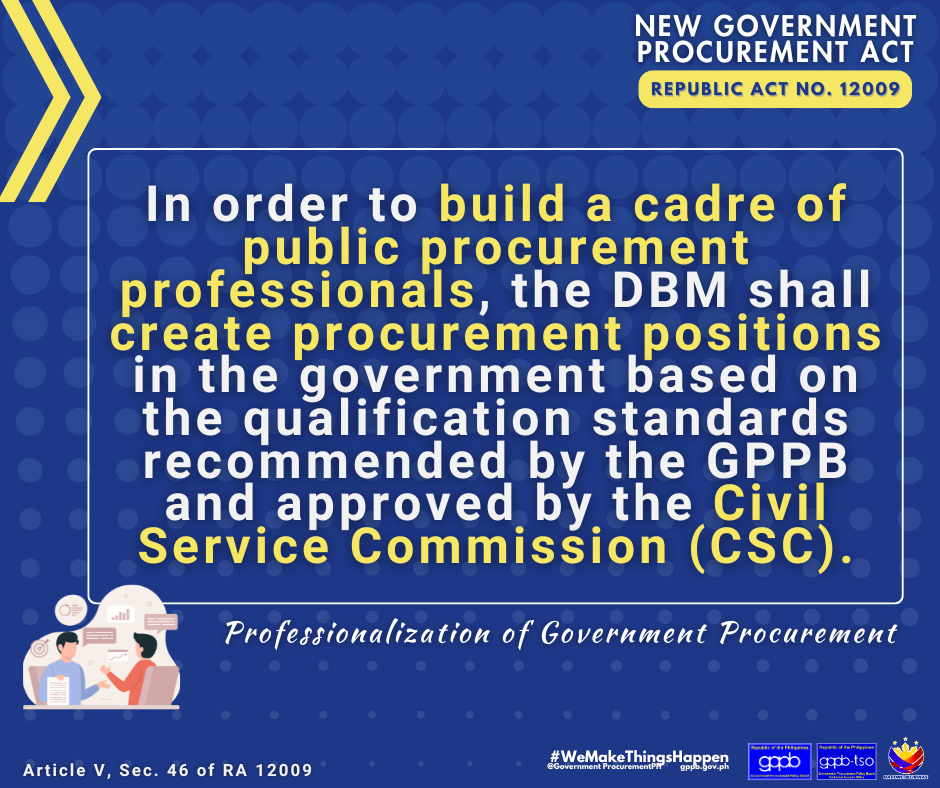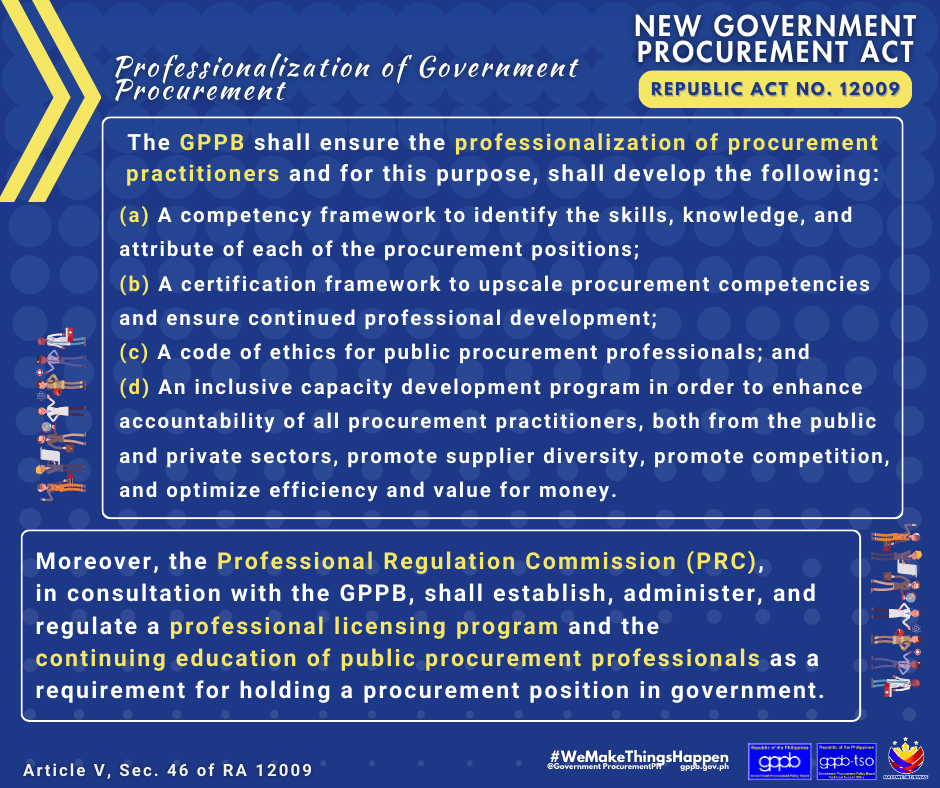


Historically, procurement was considered just one of many tasks managed by administrative personnel within government agencies, rather than a specialized function. Today, however, it is recognized as a highly complex and essential activity, crucial for ensuring the efficient use of public resources to improve service delivery and the quality of life for citizens. The role has evolved significantly from mere administrative task to more strategic undertaking. Despite this, in many countries, procurement is still not regarded as a distinct profession, and developing professional expertise in procurement to address development challenges remains an ongoing task.
Under the Government Procurement Reform Act, or Republic Act No. 9184, the professionalization of members of the Bids and Awards Committee, Technical Working Group, Procurement Units, and other relevant procurement personnel was achieved through procurement training or capacity development programs to enhance their capability to undertake procurement activities.
📜The enactment of the New Government Procurement Act (NGPA), or Republic Act No. 12009, marks a significant advancement in the professionalization of procurement practitioners in the Philippines. Section 46 of the NGPA institutionalizes professionalization as a fundamental principle of public procurement in the Philippines. This aims to build a cadre of procurement professionals who embody technical competence and espouse ethical procurement practices. Under the NGPA, the professionalization of procurement practitioners involves a more structured professional development program that extends beyond merely attending procurement training. It mandates the Department of Budget and Management to create procurement positions in the government based on qualification standards recommended by the Government Procurement Policy Board (GPPB) and approved by the Civil Service Commission (CSC). Additionally, it authorizes the GPPB to develop a Competency Framework, Certification Framework, Code of Ethics for Public Procurement Professionals, and Capacity Development Program, and directs the Professional Regulation Commission to establish, administer, and regulate a Professional Licensing Program for procurement practitioners.
These reforms represent a significant advancement toward ensuring that procurement professionals are not only technically proficient but also adhere to strict ethical standards, thereby reinforcing public trust and contributing to more efficient, transparent, and accountable public procurement systems.
The NGPA recognizes that empowering procurement professionals is crucial for achieving excellence through continuous learning and ethical practices.
Stay updated on key reforms in procurement professionalization to strengthen ethical practices in government procurement.
#NGPA #GPPBeProfessional #WeMakeThingsHappen


